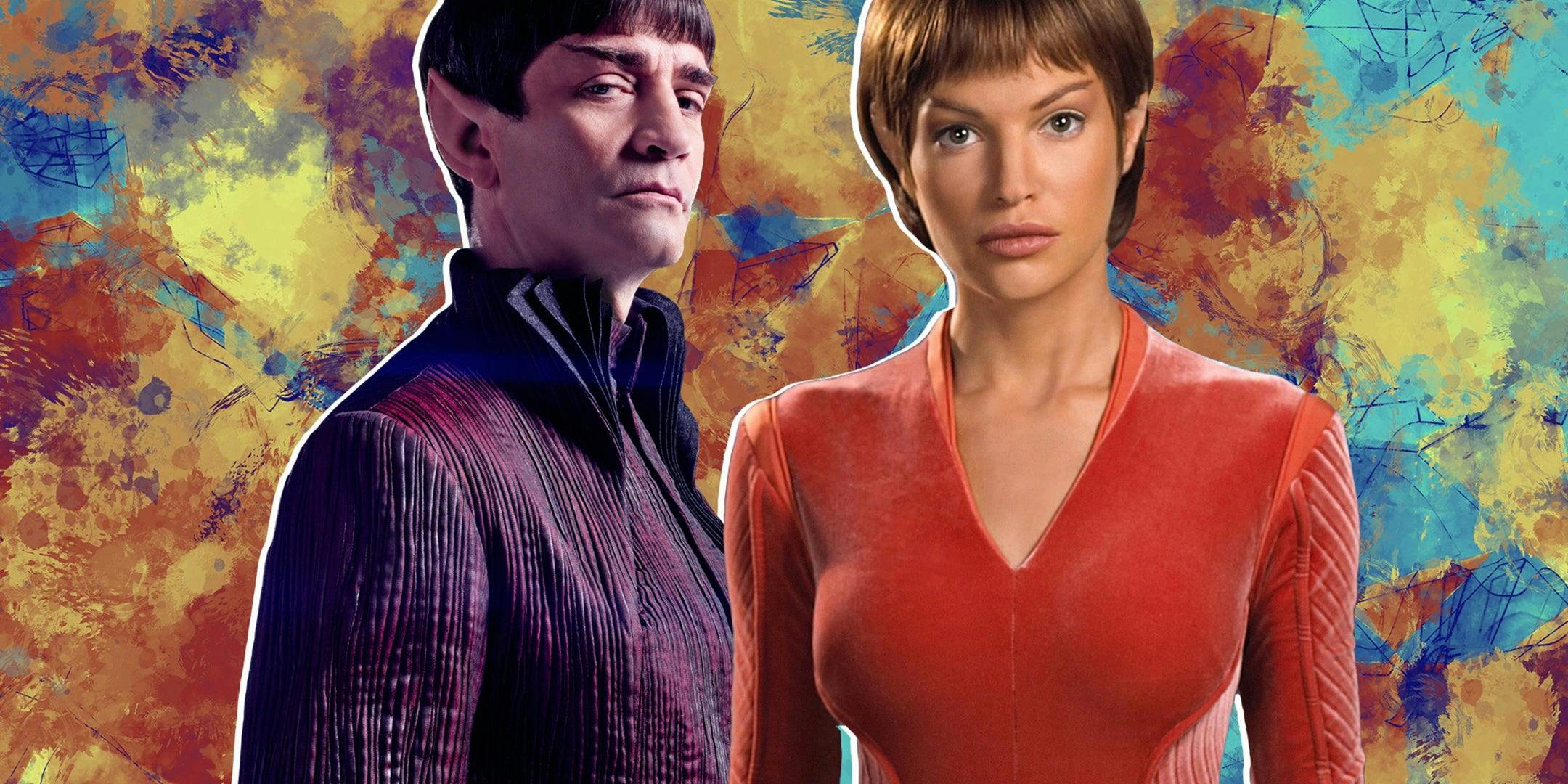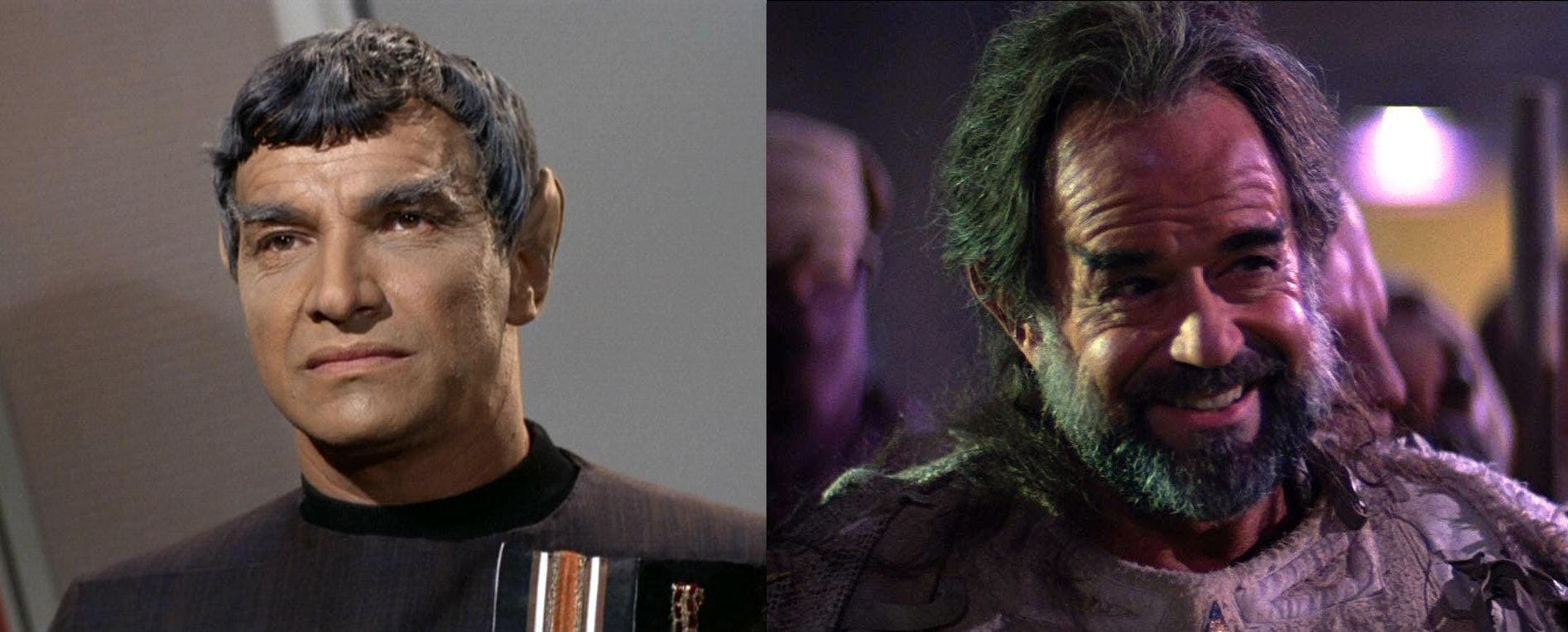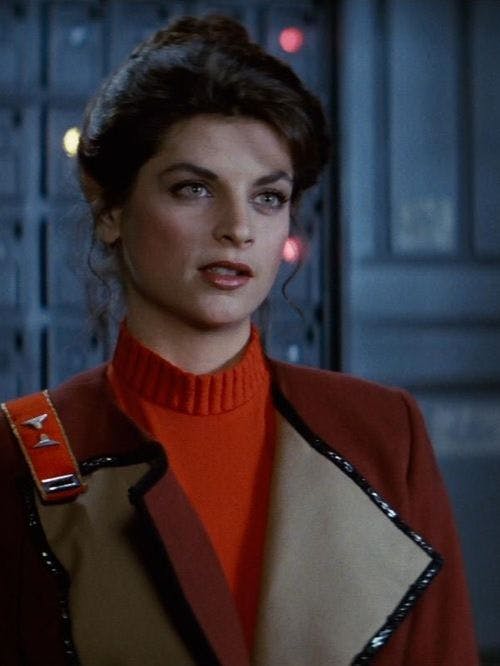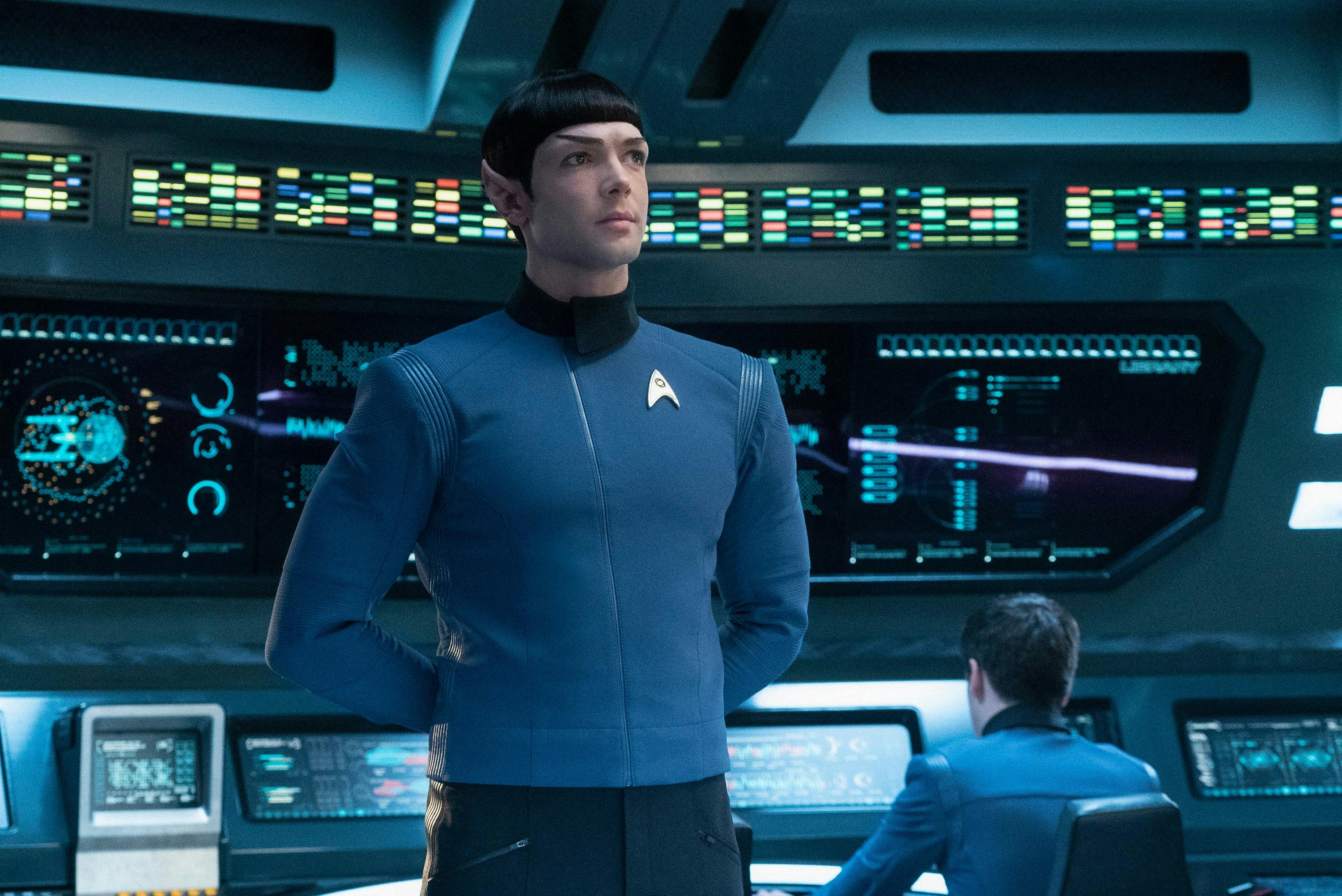Published Jun 8, 2020
The Potential for Queerness in Vulcan Culture
One fan reflects on how Vulcan names break from gendered conformity.

startrek.com
One of the most utopian ideals presented in all of Star Trek is the philosophy of “infinite diversity in infinite combinations,” an acknowledgment and celebration of the expansiveness of lives, experiences, and elements in the universe. While IDIC was deliberately introduced into The Original Series, one of the most beautiful examples of this principle in action was accidental – Vulcan names, as they have developed over the course of Star Trek’s history, allow for a thrillingly queer reading of Vulcan culture.
A 1966 memo to Gene Roddenberry from producer Robert Justman laid out the first set of “rules” for proper Vulcan names. He suggested that all Vulcan names “begin with the letters ‘SP’ and end with the letter ‘K.’ All names have a total of five letters in them – no more and no less.” While the rest of this memo and the series of replies quickly seize onto some of the more amusing possibilities here, like “Spunk,” “Spank,” and “Spork,” the basic idea of this proposed rule did make it into show canon. It did not wind up being quite so restrictive, as writers and producers rarely insisted on the initial ‘SP’ as opposed to a simple ‘S’ to start, but the names of Vulcan men such as Sarek, Sybok, Satok, and Surak all meet most of these criteria.

StarTrek.com
The naming conventions for Vulcan women are less explicitly codified, but there are some clear patterns to them as well. Vulcan female names are not restricted in length or by final letter, but they do tend to start with the letters “T’P,” like T’Paal, T’Pan, T’Pau, and T’Pring.
It seems clear, from looking at the list of Vulcan names over the history of Star Trek, that there are some fairly rigid gendered naming conventions in Vulcan society. However, in a fascinating and wonderful turn of events, just as many – if not more – Vulcans break these conventions rather than follow them!
Lieutenant Saavik, who appeared in the Star Trek films II, III, and IV, is played by women and uses she/her pronouns but has a name that follows most of the masculine naming conventions. Mestral, a Vulcan explorer from the mid-20th century who appeared in an episode of Enterprise, is played by a man and uses he/him pronouns and doesn’t follow either gendered pattern for his name. T’Klass, one of Surak’s students, is referred to with he/him pronouns while his name begins with the typically feminine construction.

StarTrek.com
This on its own might not be enough to suggest queerness as an integral part of Vulcan culture. After all, if Vulcan parents are giving their children gender-non-conforming names, that doesn’t necessarily have anything to do with any child’s relationship to their own gender. However, it has been repeatedly established in canon that Vulcan names are essentially unpronounceable by non-Vulcans, even with the help of the universal translator. Spock says so in The Original Series, and in The Animated Series, Amanda mentions her years of struggle to pronounce her own Vulcan name that was given to her when she married Sarek. Since we don’t know these characters by their Vulcan given names, I do wonder how these characters came by their second names. Could it be that these are names that they chose themselves, and in doing so are deliberately reflecting their relationship to their own gender or queerness?
As a queer Star Trek fan, when I realized that Vulcan names might be following and breaking the gendered “rules” for as many reasons as there are Vulcans, I was filled with joy at the wonderful ideals that this would indicate about Vulcan society. Here is a planet and a culture full of fascinating, nuanced characters living all sorts of lives while exemplifying a whole spectrum of gender expressions – just like me and my human friends, here and now. I think of my queer community and the people I know and love, and I see us making the same sort of decisions about how we present ourselves as Vulcans might be making with their names. How do we want people to see us? How do we want the world to know and remember us? Do we want to throw our lot in with any one gendered convention, or multiple conventions, or none of them?
When I think about Star Trek as a vision of a utopian future, this Vulcan tradition of gender-non-conforming names stands out to me as one of the best embodiments of “infinite diversity in infinite combinations.” Even if it was not intended to make any sort of overt statement about queer, trans, and nonbinary acceptance, by naming characters in nontraditional ways Star Trek has created a radically hopeful vision of unchallenged, unafraid, open, and accepted queer life. While Vulcan characters have gotten into all sorts of conflicts over the course of the show, no one has ever claimed that their name or the way they use it is “wrong.”

StarTrek.com
Beyond the rich possibilities for representation, I also find it profoundly satisfying that, of all the alien species we know and love in the Star Trek universe, this sort of open queerness and gender convention defiance happened on Vulcan in particular. Here on Earth, in 2019, there are still far too many people who think that living an openly, joyfully queer life is distasteful in some way. People still question the logic of me choosing to make my queerness “in your face” — that is to say, at all visible — but I did come out, and I continue coming out and choosing to live my queerness visibly and proudly whenever I can. I make these choices because I think that acknowledging and celebrating an important part of myself is healthy, delightful, and entirely logical, and I like to think that Vulcans would agree with me.
Choosing a gender-non-conforming name can be a very visible and overt expression of queerness – it’s a way of saying “I insist that you see me as I am.” And at its core, I think that coming out means knowing who you are, and insisting that your self-identification and self-definition is the only one that can possibly be true.
So, when I look at Vulcan culture and their relationship with naming conventions, I am able to see a society that understands where I am coming from as a queer person in the world today, and where I hope humanity and the universe is going – towards an understanding that engaging with your community and tending to your soul by honoring and expressing your identity is so logical it doesn’t even bear discussing. I hope that we all strive towards a world where coming out is entirely a moment of celebration, affirmation, and truth, without any fear at all.
Julia Peterson (she/her) is a queer Jewish journalist currently based in Regina, Saskatchewan. She also writes for INK Magazine, The Carillon, and Reading in Translation, and would give just about anything to have a pet tribble. Find her on Twitter @hark_a_julia.

